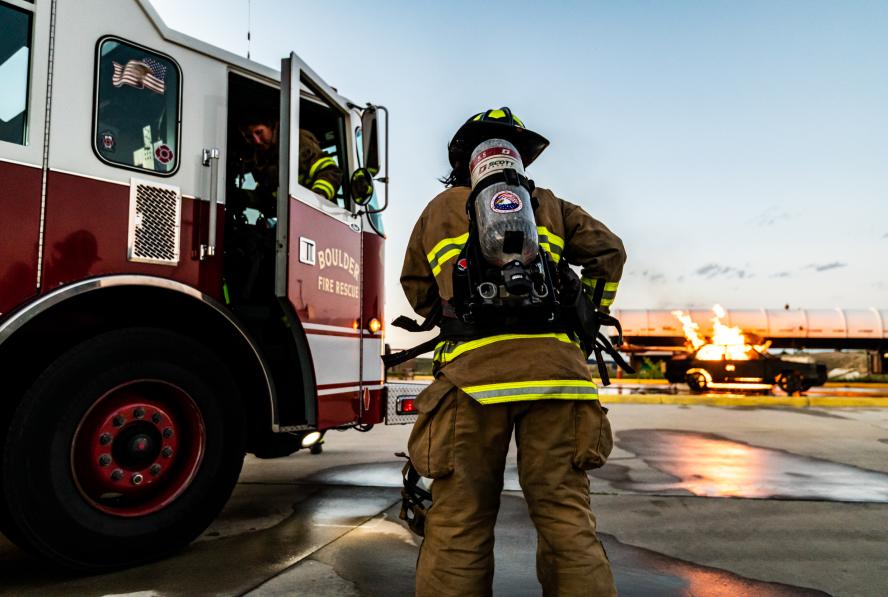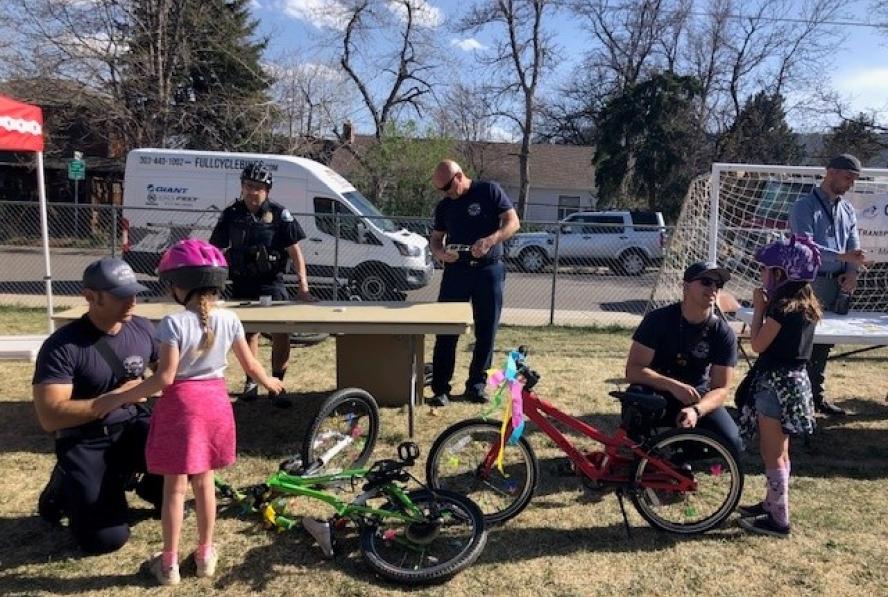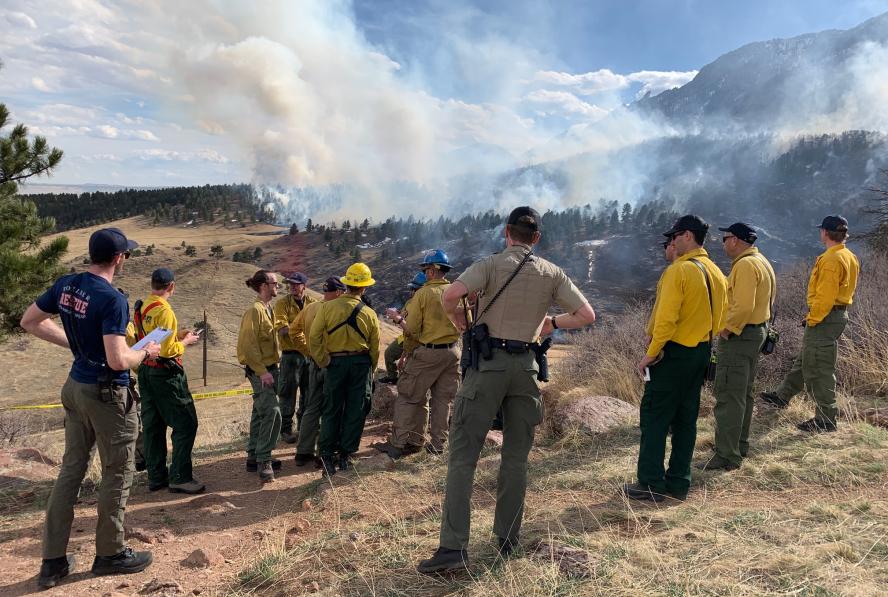Boulder Fire-Rescue Department provides the following services:
- Fighting structural, wildland and other fires;
- Responding to medical emergencies, rescue situations, hazardous material releases, and natural disasters;
- Providing fire-safety education to the public, from children and youth (preschool through college age) to seniors;
- Working with local businesses and organizations by inspecting buildings and reviewing construction plans for fire prevention code compliance;
- Acting as the designated emergency response authority (DERA) for hazardous materials incidents in the City of Boulder;
Our City encompasses 27 square miles of land and is surrounded by 71 square miles of city Open Space and Mountain Parks (OSMP). We respond to more than 10,000 emergencies annually.
Our Divisions:
Emergency Services
This division provides a full range of emergency response services as noted in the City Charter, Boulder Valley Comprehensive Plan and Department Master Plan. These services are carried out by personnel stationed at seven strategically-located stations throughout the city. In addition, several emergency response contracts with cooperative entities ensure resiliency and cost-effective service provision.
Community Risk Reduction
This division provides fire prevention services through coordinated engineering, education and enforcement initiatives. The public education program targets specific groups based on risk and key demographics. The workgroup also offers evaluation and intervention for children ages 3 to 18 who have been involved in a fire-setting incident. Community risk-reduction also provides inspection and enforcement services to ensure existing buildings and new construction meet fire and safety code requirements, as well as providing fire cause and origin determination on all fires.
Wildland Coordination
Wildland Coordination provides initial fire attack for wildland fires on city-owned open space. In addition, the division conducts forest thinning services, pre-planning and coordination of wildfire response with neighboring fire districts.
Internal Support & Administration
This division provides support services and training for the department, including personnel management, accounting, budget, basic payroll, purchasing and general management of the department. In addition, the training program provides training for fire fighters, helping them maintain and expand the skills needed to handle the wide variety of demands based on community risk. This includes emergency medical skills training for fire fighters and associated certifications based on national standards.
Accreditation Report Information:
Accreditation through the Commission on Fire Accreditation International (CFAI) and the Center for Public Safety Excellence (CPSE) is an international measure of excellence. Accreditation is an independent review process of 255 performance indicators that evaluate the Fire Department's emergency services, programs, personnel, administration, financial management, and governance. Accreditation requires significant organizational review, monitoring, reporting, and improvement planning. A continuous process designed to create sustained excellence; the Fire Department will produce annual performance improvement reports and complete a re-accreditation process every 5 years.
There are approximately 259 internationally accredited fire agencies in the world. Through the Accreditation process, the surrounding community will receive the best service possible.
Accreditation requires BFR to evaluate 255 individual areas through a self-assessment process. Conducting a self-assessment helps identify the department's strengths and weaknesses and ensures plans for improvement are in place.
This self-assessment demonstrates our dedication to providing emergency services to the community. The self-assessment process also ensures those services are provided in an effective and efficient manner and promotes future excellence through a continuous self-assessment process.
BFR strives to balance fiscal responsibility with the operational and social needs of the department and the campus community. The Department plays a pivotal role in its representation of this responsibility through daily interactions with the public. The community's goal of living on a safe campus is the vision of the Department's Strategic Plan. To view our accreditation documents, please click on the links below:


